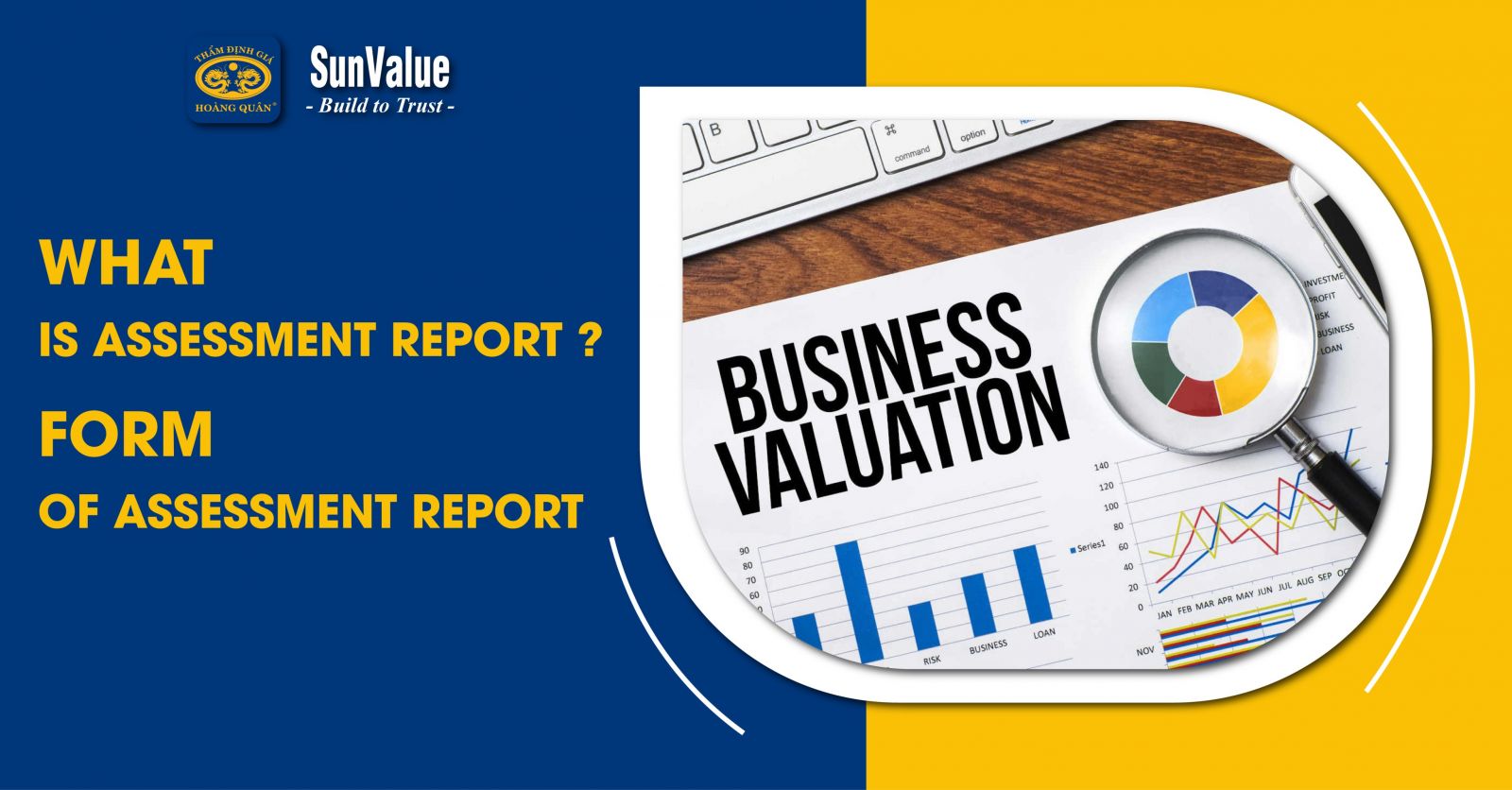WHAT IS THE ASSESSMENT REPORT? FORM OF ASSESSMENT REPORT
Valuation activities are one of the popular activities today, caused by the rapid development of the market economy, the demand for valuation is increasing. Accordingly, valuation according to regulations is the determination of the price of an asset by competent, professional and knowledgeable organizations conducting valuation. Valuation in todays social life plays an increasingly important role as the basis for making appropriate decisions regarding the investment, management, ownership, mortgage and business of assets.
According to the provisions of the law, valuation activities mean that agencies and organizations with the function of price appraisal determine the monetary value of assets according to the provisions of the Civil Code in accordance with the market prices in Vietnam. a certain place, a certain time, serving a certain purpose according to the valuation criteria. Accordingly, not all objects can be appraised, for organizations that want to have the function of valuation activities need to meet the conditions prescribed by law and individuals are not allowed to conduct independent valuation activities. . All valuation processes and procedures must be complied with regulations on valuation

Principles and Process of Valuation
Pursuant to the provisions of Article 29 of the Price Law 2012, the specific principles of valuation activities are as follows:
“Article 29. Principles of valuation activities
1. Comply with Vietnams laws and standards for appraisal of prices.
2. To take responsibility for price appraisal activities according to the provisions of law.
3. Ensuring the independence of professional expertise, the truthfulness and objectivity of the price appraisal activities and the appraisal results.
4. Confidentiality of information in accordance with the law”
Thus, in order to conduct valuation activities, organizations that are allowed to appraise prices need to comply with the provisions of law and the valuation standards of Vietnams law. Valuation organizations must be responsible for valuation activities, ensure the independence of professional expertise, truthfulness and objectivity of valuation activities and valuation results, and confidentiality. information in accordance with the law
Regarding the valuation process, based on Article 30 of the 2012 Law on Prices, it is regulated as follows: First, the organization competent to appraise the property must make a general determination of the property to be appraised and determine its market or non-market value. the market as a basis for price appraisal, then proceed to make a price appraisal plan; fact-finding and information-gathering. After collecting information, it is necessary to conduct information analysis and determine the value of the property to be appraised. The final step is to make a report on valuation results, a certificate of valuation and send it to customers and related parties.
Contents of the appraisal result report
According to the law, the report on valuation results must be a document based on the data collected and analyzed by people with expertise and knowledge of appraisal, showing all the correct information in accordance with the law. realistic, descriptive and based on specific evidence to justify the price of the asset to be appraised. These conclusions will be presented in a complete and scientific form
The detailed content of the Report may change according to the subject of the appraisal, the purpose, the request to conduct the appraisal and the request of the customer. However, a Report must include the following basic contents:
– Information about the valuation enterprise or the branch authorized to issue the valuation certificate.
Name and address of the enterprise, its transaction office (if any). Name and address of the branch of the enterprise issuing the Valuation Report and certificate.
- Basic information about the appraisal:
– Information about the customer to appraise the property, the number of the appraisal contract and/or the written request/request for valuation.
– Name of the asset to be appraised, Time of valuation, Purpose of valuation, Sources of information used in the valuation process and the degree of inspection and appraisal of such information sources, Legal bases Reason for valuation, Market overview
– Information about the appraised property, Value basis of the appraised asset, Special assumptions and assumptions, Application of valuation approach and method
– Result of valuation
– Validity period of valuation results
Information and signatures of the appraiser and the legal representative of the enterprise or the authorized representative in the field of valuation (if any) of the valuation enterprise. pricing:
Attached appendices include: List of all documents, information related to the valuation, documents showing the legality and economic - technical characteristics of the appraised asset, results actual survey results of the appraised property, other contents related to the appraisal
Lawyer Nguyen Van Duong
Related article
- GROUND LAND KEEP THE MARKET IN THE YEAR 2021
- VALUATION - IN REAL ESTATE TRANSACTIONS
- CUSTOMER APPRECIATION – SUNVALUE DISCOUNTS 15% SERVICE FEE
- LEGAL DOCUMENTS NEEDED TO PROVIDE WHEN ASSESSMENT OF INVESTMENT PROJECTS
- VALUATION OF ASSETS MORTGAGE FOR DEBT TREATMENT
- APPRAISAL FOR LOANS ISSUANCE OF BONDS ON THE STOCK EXCHANGE
- NOTES WHEN LOANING BANK TO BUY HOUSE
- GOVERNMENT REGULATIONS ON VALUATION THE STARTING OF BAD DEBTS
- NOTICE OF INCLUDING SUNVALUE NAME IN THE INTRODUCTION OF ASSESSMENT SERVICE
- An Independent Appraisal Of Prices By Banks As A Partner
- SUNVALUE STEP-BY-STEP COMPLETE PRICE INDICATORS TO FITNESS THE REAL ESTATE MARKET
Send request a quote
Please share with us some of your information, we will contact you upon request



 VI
VI